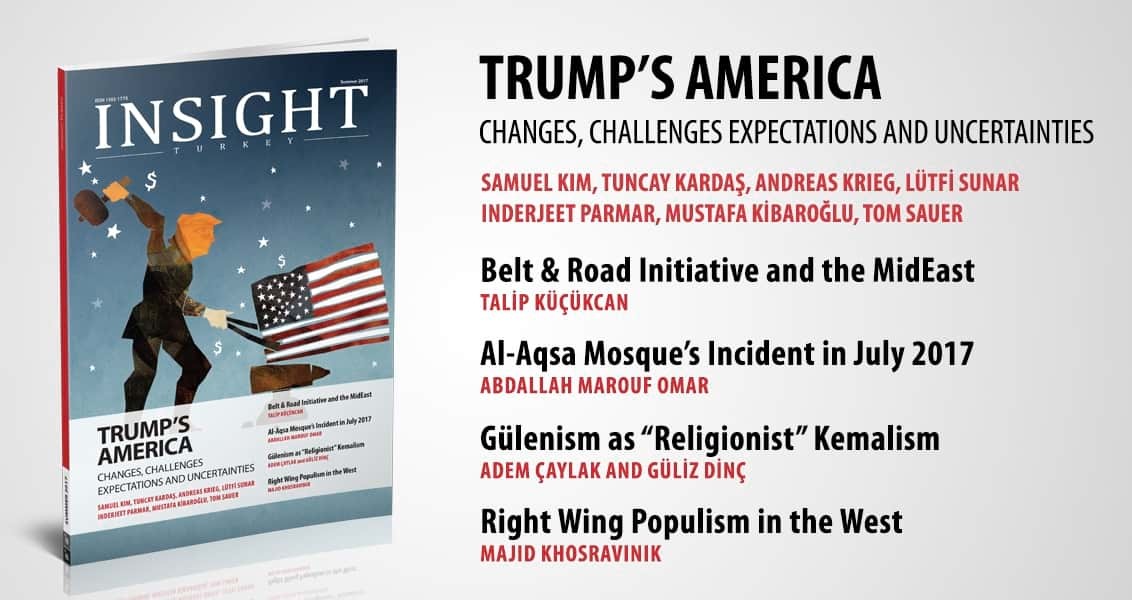In this issue, Insight Turkey, deals with the events in world politics with the interpretation of Turkish and foreign authors. The issue discusses how U.S. President Donald Trump won the presidential election, and the changes and challenges that Trump brought to the U.S. domestic and foreign policy.
Inderjeet Parmar, Lütfi Sunar and Tuncay Kardaş focus on the internal issues that the U.S. is facing under the Trump Presidency. Parmar addresses the legitimacy crisis of the American elite while Sunar emphasizes the effectiveness of Trump’s election campaign by alienating Muslims living in the United States. On the other hand, Kardaş examines Trump’s victory in the 2016 Presidential Election in the context of cultural, political and structural factors.
Moving towards the international affairs, Mustafa Kibaroğlu and Tom Sauer justify why Trump should remove the nuclear weapons form Europe, while Andreas Krieg and Samuel S. Kim analyze the U.S.’ foreign policies towards the Middle East and China, respectively.
This issue of Insight Turkey also examines some current events in the world politics. Abdallah Marouf Omar examines the resistance Palestinian Muslims have given on the restrictions imposed by the Israeli forces regarding the entrance in the al-Aqsa Mosque. Moreover, Talip Küçükcan reviews the China-proposed Belt and Road Initiative project and the main opportunities and challenges that the participatory states will face in context of the Middle East.
Emrah Kekilli scrutinizes the Libyan crisis and how regional and global actors have been a big influence on the instability Libya has faced in this period. By focusing on the main elements of both the Gülen structure and Kemalism, Çaylak ve Dinç, make a comparison between these two. Lastly, Hamza Preljević evaluates the results of the Serbian genocide in Bosnia and the efforts of religious communities to provide peace and security in a divided society, with a special focus on the Islamic Community in Bosnia and Herzegovina
We trust that our readers will find this issue informative and constructive!
In this article
- News
- 2016
- Al Quds
- Al-Aqsa Mosque
- Bosnia and Herzegovina
- Bosnian Genocide (1992-1995)
- Bosnian Muslims
- China
- Donald Trump
- Europe
- Genocide
- Global Actors | Local Actors
- Insight Turkey
- Islam
- Islamic
- Israel
- Jerusalem
- Kemalism
- Libya
- Libyan Crisis
- Middle East
- Muslim
- Nuclear weapon
- Palestine
- Serbia
- Turkish Foreign Policy
- Turkish-American Relations
- Türkiye
- Türkiye-US Relations
- Türkiye's Foreign Policy
- United States (US)
- US President
- USA



